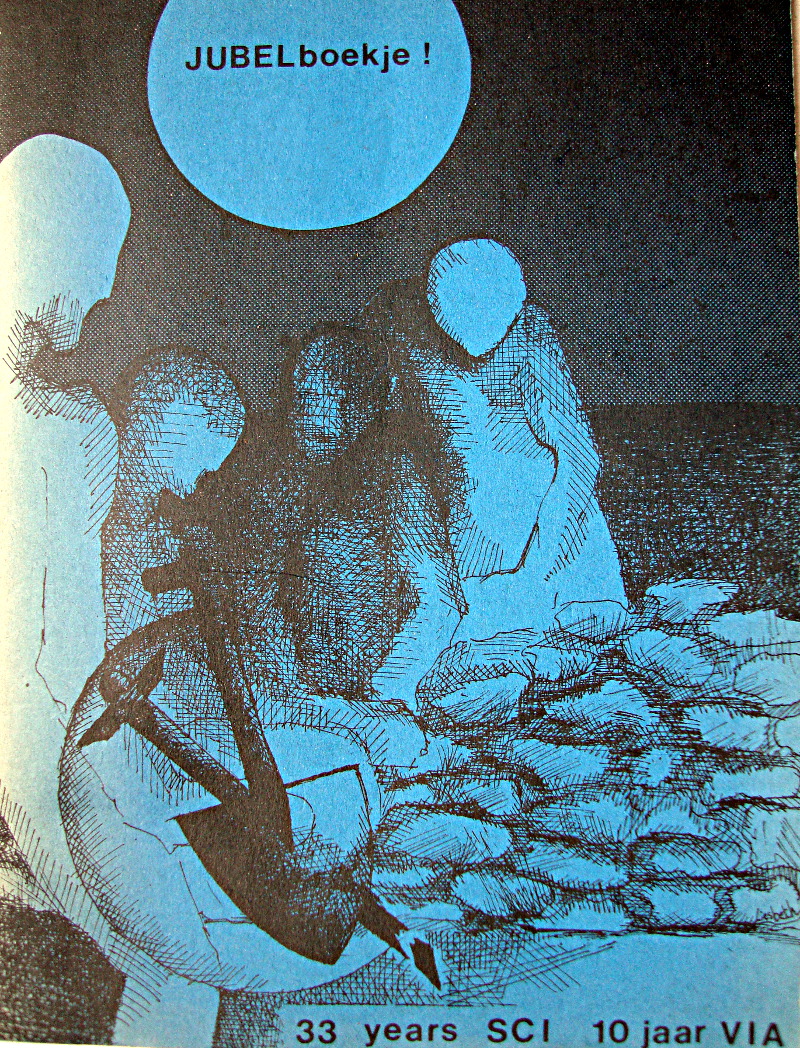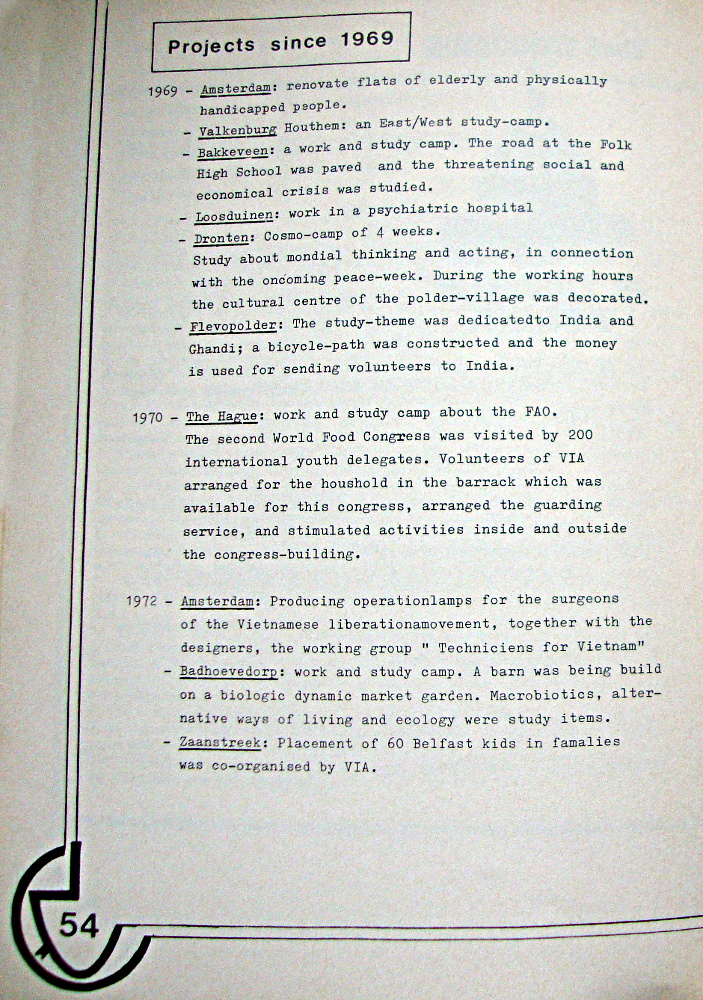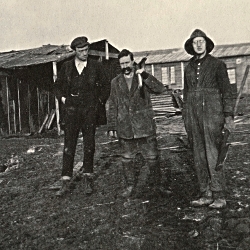Service Civil International
Het Jubelboekje, VIA Netherlands 1979
by Heinz Gabathuler (May 21, 2018)
 "33 years SCI, 10 jaar VIA" says the cover of "het JUBELboekje!", drawn in black and blue and, at least to my taste which is around half a generation younger than the one of its makers, making a rather depressing and not at all jubilating impression. VIA, the Dutch branch of SCI, indeed has been founded in 1969 – but what is meant by "33 years SCI", as everyone nowadays thinks that SCI exists since at least 1920? Indeed, SCI as we know it, an international organisation consisting of national and regional branches, exists since the end of World War II – one could take 1945 (first International Delegates Meeting) or 1949, first International Constitution as the starting date of SCI. Why the "Jubelboekje" editors chose 1946 is not explained anywhere, and I guess it was just because 33 was seen as a catchy number.
"33 years SCI, 10 jaar VIA" says the cover of "het JUBELboekje!", drawn in black and blue and, at least to my taste which is around half a generation younger than the one of its makers, making a rather depressing and not at all jubilating impression. VIA, the Dutch branch of SCI, indeed has been founded in 1969 – but what is meant by "33 years SCI", as everyone nowadays thinks that SCI exists since at least 1920? Indeed, SCI as we know it, an international organisation consisting of national and regional branches, exists since the end of World War II – one could take 1945 (first International Delegates Meeting) or 1949, first International Constitution as the starting date of SCI. Why the "Jubelboekje" editors chose 1946 is not explained anywhere, and I guess it was just because 33 was seen as a catchy number.
Most of the text is bilingual – English and Dutch – which shows that it was written for an international readership. The origins of SCI in the Netherlands are explained by Maria van Everdingen, apparently one of the founders of IVH, the first Dutch branch. She writes about the first workcamp taking place under German occupation in 1941 in Bilthoven, at the school of Kees Boeke, the same Bilthoven where the very idea of an international voluntary service for peace had actually been born (see article about the Boschhuis).
The brochure explains the transition from the old IVH to the current VIA in 1969, being the consequence of a merger with another organisation and, more specifically, taking place in the context of the challenges the more progressive milieux of Western societies, of which SCI has always been a part, were facing in these times. It reminds the international seminar on SCI and politics that had been organised in the Netherlands in the same year and which I had paid attention to a few years ago (see article about the Uddel seminar), stating that
"the aims of SCI need be reformulated and materialised in the workcamp-schemes. The old ‘do-gooder’-volunteer is buried symbolically and the new ‘activist’-volunteer rises." (p. 20)
 The authors express their conviction that SCI should be a political movement, and also state that "it is notable that the Asian branches of SCI, who also organise a seminar, want to keep their work separated from politics".
The authors express their conviction that SCI should be a political movement, and also state that "it is notable that the Asian branches of SCI, who also organise a seminar, want to keep their work separated from politics".
As in many Western countries we are currently celebrating 50 years of the students’ revolt of 1968, it should be reminded that the cultural revolution brought by that revolt has fundamentally changed SCI, with many a cultural or ideological difference between Europeans and Asians within SCI having its roots in these events. And it fits the spirit of the time that the magazine of the newborn second Dutch branch is called "Frust".
The book is complemented with a comprehensive list of all projects (workcamps being only one variety among them) organised by VIA in the 10 years of its existence, with a short essay by International Secretary Franco Perna on SCI as an international organisation, and another one by great old Ralph Hegnauer on SCI philosophy: He identifies the
"red threads which mark SCI from beginning up to, hopefully, today:
A) The ultimate goal to which actions are directed, is PEACE, i.e. a peaceful society in which social and economic justice are realized and human rights fully respected.
B) The method applied by SCI is constructive practical work and service, together with and in favour of underprivileged and marginal groups neglected by present day society." (p. 63)
Would you still subscribe to this?
Heinz Gabathuler, International Archives Coordinator
Reference:
In the Archives, the brochure is being stored in a box with a bunch of other publications by and on SCI from the 1970s. Number 11108B.48.



